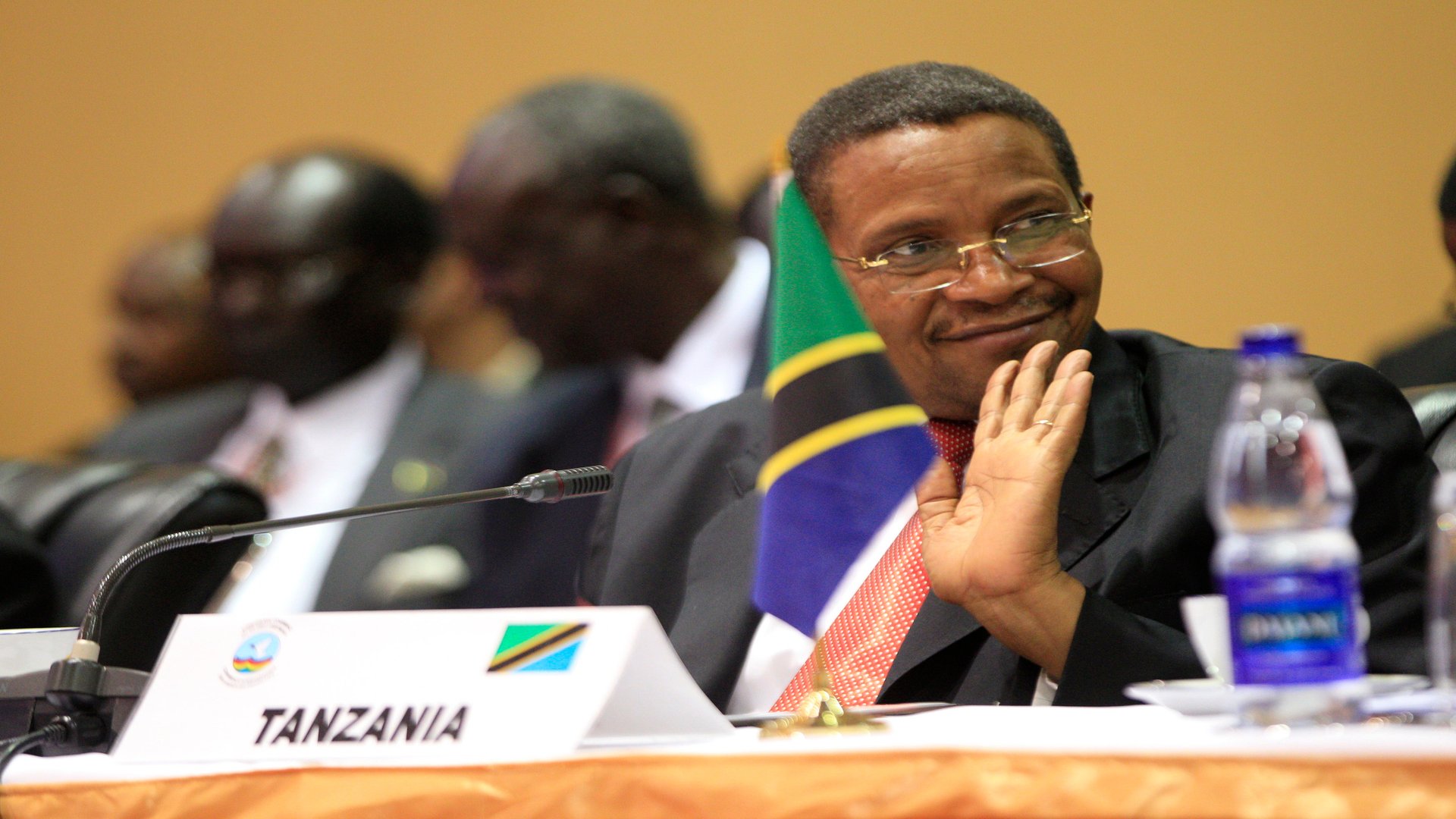Tanzania’s president is warning his country terrorists may be in their midst
The drip, drip, drip, then eventual eruption of Boko Haram in Nigeria over the last few years has concentrated the world to the dangers of ignoring early signs of terrorism across Africa.


The drip, drip, drip, then eventual eruption of Boko Haram in Nigeria over the last few years has concentrated the world to the dangers of ignoring early signs of terrorism across Africa.
One minute Boko Haram was being underestimated by the president as a bunch of disaffected thugs committing robberies and individual attacks, the next thing they were killing thousands of people and pledging allegiance to ISIS,
Some East African countries have endured a spate of terrorist attacks over the last few years, but the region’s second biggest economy Tanzania has largely been a beacon of stability and peace in the region. This has traditionally been the case even though a larger share of Tanzania’s population (35%) is Muslim than neighbors Kenya (7%) and Uganda (12%).
Al-Shabaab, the Somali militant group, has struck fear in Kenya and Uganda with deadly attacks that have killed hundreds of people. In 2013, the group claimed responsibility for the Westgate Mall attack in Nairobi that left 69 people dead. In 2010, 74 World Cup fans were killed in a Kampala sports bar by a bomb blast linked to the militants.
These attacks, analysts argue, may be blowback for Kenya and Uganda’s military intervention in Somalia aimed at shoring up the government that struggled to contain the group.Tanzania declined to be a part of the African Union-backed operation, with some officials believing then that the decision would inoculate the country from the threat of al-Shabaab.
But recent pronouncements by senior government officials suggests that terrorism may be a growing threat in the country.
President Jakaya Kikwete, in a rare public comment on matters of national security, revealed earlier this month that terrorists may have been behind attacks on several police stations in the country that left 10 officers dead last month.
While the police deny any foreign connection to the attacks, a video circulating online, that appears to have since been removed, claims Al-Shabaab may have been involved.
Some analysts, however, doubt whether the group was directly involved. “My sense is [it’s] not Al-Shabaab but rather copy cats, lone wolves, people/groups who share Al-Shabaab’s world view,” says Abdullahi Boru, a Nairobi-based Africa Security Analyst for Amnesty International.
Security experts point out Al-Shabaab as a force has been severely diminished. Paul Hidalgo, writing in Foreign Affairs argues that “with the head of this autocracy now dead, and other senior leaders either marginalized, arrested, in hiding, or executed, the chances that al Shabab [sic] will live on as a cohesive force are marginal at best.”
However, what is keeping analysts up at night is the potential that the group’s violent extremist ideas will metastasize in other East African countries, such as Tanzania.
“The message of the group, as is with other Jihadi group[s] has a degree of resonance within the region, Tanzania included. Let’s not forget, Tanzania was hit like Kenya in the 1998 embassy bombing, “said Boru. Over 200 hundred people died in those twin attacks orchestrated by Al-Qaida. Local Tanzanians aided Osama bin Laden’s efforts to bomb the U.S. Embassy in Dar es Salaam, according to U.S investigators.
Meanwhile, home affairs Minister Mathias Chikawe told the BBC that he believed Mohammed Emwazi, the alleged ISIS militant otherwise known as “Jihadi John” intended to commit “acts of terrorism” in Tanzania when he travelled there in 2009. While Amwazi was refused entry, Mr. Chikawe believes that, ”[he] must have wanted to do some terrorist acts. I think maybe they wanted to harm us.”
Additionally, in 2013 Kikwete told a Kenyan newspaper that Tanzania’s security agencies helped stop a planned attack against Kenya. Speaking to the Daily Nation, he said, ”we had to deal with some groups that wanted to disrupt the Kenyan elections; they were trying to hide here and we had to arrest them before the Kenyan elections but these are issues that we always deal with quietly.”
More recently, pockets of attacks in Zanzibar and the northern region of Arusha have raised fears that the peace Tanzania has enjoyed since its independence is in danger of being disrupted.
With these latest revelations, a pattern can be gleaned that suggests the threat of terrorism is real in the country. Regional analysts say that the rise of separatists ideas in Zanzibar and youth unemployment in the country as a whole could be used by Islamists as a recruiting tool for their cause, something that African security agencies agencies acknowledge is a real problem.
“We cannot overstate the stability of Tanzania in a region that has been bedeviled by civil war and now terrorism,” Boru says. “However, that peace could be threatened by transnational jihadi groups who will exploit long standing [grievances], especially in the Zanzibar coast, and even the main land.